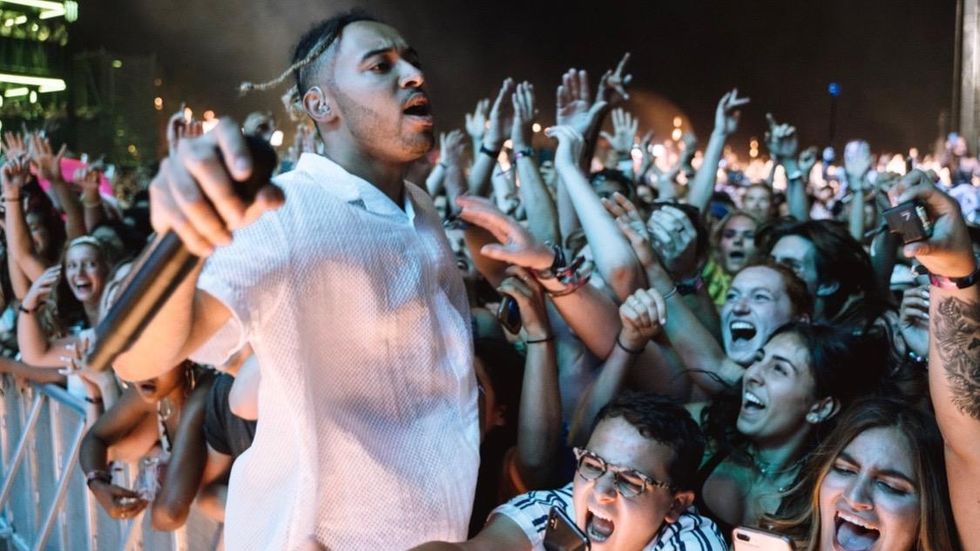These Experts Believe the Music Industry is Primed for the Metaverse
Decerry Donato is a reporter at dot.LA. Prior to that, she was an editorial fellow at the company. Decerry received her bachelor's degree in literary journalism from the University of California, Irvine. She continues to write stories to inform the community about issues or events that take place in the L.A. area. On the weekends, she can be found hiking in the Angeles National forest or sifting through racks at your local thrift store.

In the past year, musicians including Megan Thee Stallion and Travis Scott have forged their way into metaverse-related businesses by hosting virtual reality (VR) concerts. It’s no surprise then that the metaverse, still in its early stages of development, has captured the attention of some of the largest investors over the past few years. And a handful of Los Angeles-based music companies invested in the metaverse are trying to capitalize on the moment. Two such companies are Hume, a web3 record label and music NFT project Blocktones, that creates unique tracks minted on the Ethereum blockchain. We spoke to them to find out if musicians along with the music industry will embrace the metaverse.
Here are the most important takeaways:
Web3 will not replace Web2 because both will continue to exist.
“You're still gonna have the traditional world of entertainment,” songwriter, producer and Hume co-founder Jay Stolar says. “But as more people start spending more time in virtual spaces, and owning virtual goods, you're gonna have more major entertainment and music companies finding a way to bring that(Web3/metaverse) into their world.”
With over 100,000 tracks being uploaded to streaming platforms each day, it is becoming more difficult for fans to engage with new content.
“Consumers and fans don't really feel tied to the song that they're listening to because there's a new viral song on TikTok every week,” Grammy-winning producer Gino Borri says. “And it makes music feel cheap like fast fashion.”
Music NFTs give fans the connection to artists the way vinyl and CDs did in the past generations.

Reo Cragun singing in front of crowd at concert
Hume
“We (Blocktones) really wanted to create something disruptive for the music industry and give people that access again,” Borri says. “You may have no music background, but let's say you buy this track and you connect with somebody in our Discord and they're an upcoming artist, and they're looking for a beat,” Borri continues. “By owning this beat on the blockchain you essentially are a producer. If they record a derivative on it and put it out and put a track over your beat, you're now a producer on that record.”
Web3 has added another layer for fans to interact and consume music from their favorite artists.
“The ethos of web3 is about digital ownership,” Borri says. “And we are allowing people to rethink the way you not only collect and consume music, but also what they can do with their music, and how they can activate the music that they own.”
Independent artists are reaping the benefits of the metaverse and how it will allow them to grow as a musician.
“I've released over 1000 music NFTs and sold over 1000 of them,” rapper Reo Cragun says. “I have a more organic reach than I've ever had which is great because it matters to me to know my community and to know the people who are supporting the music over how many monthly listeners that I have on Spotify.”
- Gaming Is Taking Over Music As Gen Z's Cultural Hub ›
- Meet the LA-Based Music-Tech Companies Helping Creators Monetize Their Content ›
- Meet the LA Startup Building Bars in the Metaverse ›
- Can NFT Show 'The R3al Metaverse Appeal to Viewers Beyond Early NFT Adopters? ›
- Meet Whalar, The Streamys Choice for Agency of the Year - dot.LA ›
Decerry Donato is a reporter at dot.LA. Prior to that, she was an editorial fellow at the company. Decerry received her bachelor's degree in literary journalism from the University of California, Irvine. She continues to write stories to inform the community about issues or events that take place in the L.A. area. On the weekends, she can be found hiking in the Angeles National forest or sifting through racks at your local thrift store.





 e.l.f. Beauty Chairman and CEO Tarang Amin and Rhode Founder Hailey BieberImage Source: e.l.f. Beauty
e.l.f. Beauty Chairman and CEO Tarang Amin and Rhode Founder Hailey BieberImage Source: e.l.f. Beauty